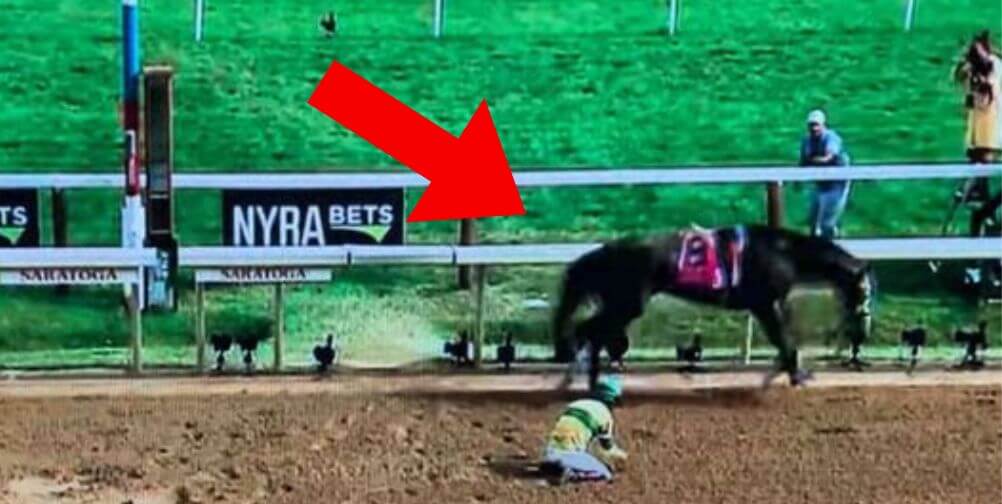PETA Calls For Suspension of Racing at Saratoga After 14 Horse Deaths
On August 26, Nobel and New York Thunder became the 13th and 14th horses to die at Saratoga Race Course since late May. PETA was filming at the track and captured New York Thunder’s shattered bone and his horrifying attempt to run, his lower leg dangling. Officials got the screens up quickly to block the public’s view, but not before everyone at the track saw the carnage. Everyone who sees this video will agree that racing must not be allowed to continue at Saratoga.
Last week, when the death toll was at 12, PETA urged the track to suspend racing and put real safety measures in place, but greed triumphed over compassion. We’re now calling on the Horseracing Integrity and Safety Authority to shut the Saratoga “slaughterhouse” down immediately.
On August 23, Burning Bright became the 12th horse to die at Saratoga Race Course during this season. On August 16, 3-year-old Thoroughbred Wisecraken became the 11th horse to die there.
The bloodbath at the track must be stopped.

PETA is calling on the New York State Gaming Commission and NYRA to suspend all racing at Saratoga pending a thorough investigation into every death and the implementation of stronger safety protocols.
We also urge the Horseracing Integrity and Safety Authority to step in and press for the track’s closure.
Churchill Downs shut down after multiple deaths, and Saratoga is obligated to do the same.
The racing industry must also implement technology that is scientifically and statistically proven to save lives. Until racetracks install synthetic surfaces and utilize CT scanning equipment to detect injuries—among other improvements—they can’t pretend to be mystified by fatalities.
What You Can Do to Help Horses
On average, 24 horses experience fatal breakdowns at racetracks across the country every week, and this number doesn’t even take into account the ones who are discarded by the racing industry when they’re no longer considered profitable. Thousands of “unprofitable” or simply unwanted Thoroughbreds from the U.S. are trucked or shipped to Canada and Mexico and slaughtered each year.
Horses used in the carriage and racing industries are afforded no protection under the federal Animal Welfare Act, so the responsibility of looking out for their welfare falls to local animal control officials and compassionate people like you. Current anti-cruelty laws provide horses with few safeguards, and many animal welfare agencies just don’t have the resources or the time to monitor horse-drawn carriages on a regular basis. Animals can easily be overworked when profit-driven operators fail to follow regulations. That’s why we must always speak up for animals in need.

